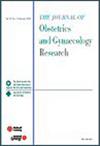Histological, Immunohistochemical, and Biochemical Evaluation of the Effect of Berberine on Ovarian Hyperstimulation Syndrome in Rats
Abstract
Aim
OHSS is a potentially fatal condition. We aimed to investigate the effects of berberine administration on folliculogenesis and VEGF, TGF-α, IL-1β, and IL-6 levels in the OHSS model.
Method
A total of 28 female immature Wistar albino rats were divided into four groups: Sham group, Berberine group, OHSS group, and OHSS + Bb group. An OHSS model was created in which 10 IU PMSG was administered for four consecutive days and 30 IU hCG on Day 5. On Day 7, all subjects were sacrificed. Body weight, ovarian weight, histologic evaluation of ovaries, biochemical evaluation of TGF-α, IL-1β, and IL-6 expressions, and VEGF immunohistochemical analysis were performed.
Results
Body weight, ovarian weight, follicular cell degeneration, vascular congestion, edema, and inflammation parameters were highest in the OHSS group (p < 0.05). In the OHSS + Bb group, primary follicles and secondary follicles increased, while corpus luteum, atretic follicles, TGF-α, IL-1β, and IL-6 levels, and VEGF expressions decreased compared to the OHSS group (p < 0.05). No statistical difference was observed between the control group and the OHSS + Bb group.
Conclusion
In the present study, we demonstrated that berberine has the potential to prevent the development of OHSS in animal models. This finding suggests that further investigation into the use of berberine in human studies could provide valuable insights and inform the development of effective treatment strategies for OHSS. Consequently, the risk of OHSS can be reduced by administering berberine to patients undergoing the controlled ovarian hyperstimulation protocol. Therefore, the life risk of patients due to OHSS may be eliminated.


 求助内容:
求助内容: 应助结果提醒方式:
应助结果提醒方式:


